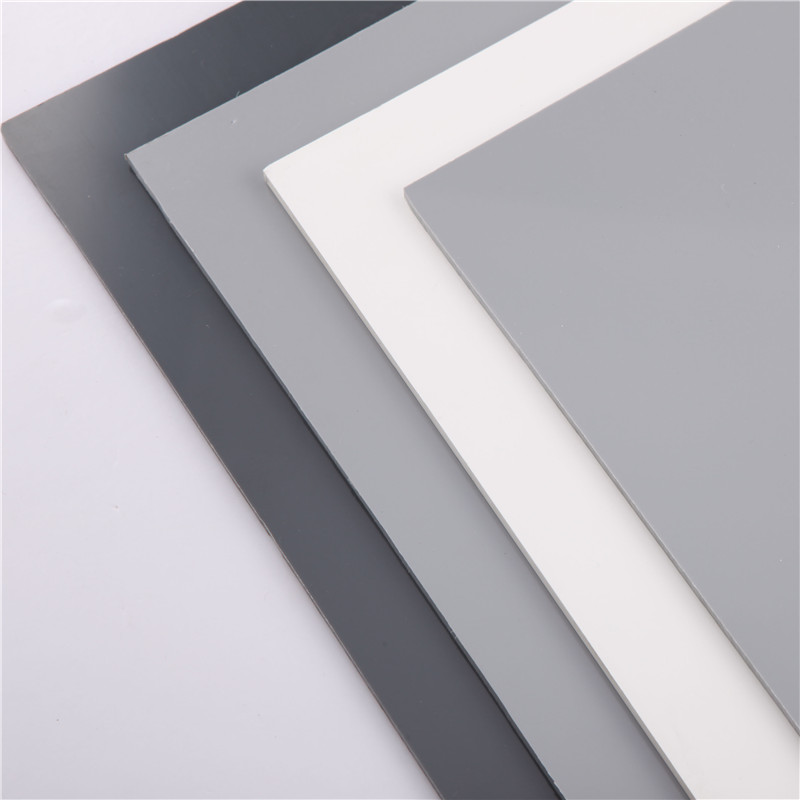Nov . 01, 2024 04:46 Back to list
High-Density Polyethylene Solid Pipe for Durable and Efficient Fluid Transportation
Solid HDPE Pipe A Reliable Choice for Modern Infrastructure
High-Density Polyethylene (HDPE) pipes have become increasingly popular in various industries due to their remarkable properties and versatility. Solid HDPE pipes, in particular, are a favored choice for infrastructure projects due to their durability, corrosion resistance, and cost-effectiveness.
One of the primary advantages of solid HDPE pipes is their exceptional strength-to-density ratio. This makes them lightweight yet durable, allowing for easier transportation and installation compared to traditional materials like steel or concrete. Despite being lightweight, solid HDPE pipes can withstand significant external loads and pressures, making them suitable for a wide array of applications, including water supply, sewage systems, and gas distribution.
Solid HDPE Pipe A Reliable Choice for Modern Infrastructure
Furthermore, solid HDPE pipes are environmentally friendly. They are manufactured from recyclable materials, and their production process requires less energy compared to conventional piping systems. Additionally, their smooth inner surface reduces friction, leading to lower energy consumption during fluid transportation, which is vital for sustainability. The reduction in energy use and the ability to recycle make solid HDPE pipes a greener choice for modern infrastructure.
solid hdpe pipe

Solid HDPE pipes are also highly flexible and resistant to impact. Their ability to bend without breaking makes them an excellent option for projects in challenging terrains where ground movements or shifting can occur. This flexibility, coupled with their resistance to cracking, is particularly beneficial in areas prone to seismic activity.
In terms of installation, solid HDPE pipes feature easy jointing techniques, such as butt fusion and electrofusion, which facilitate quick assembly. This ease of installation translates into reduced labor costs and shortened project timelines, enabling faster completion of construction and infrastructure projects. Moreover, the lightweight nature of HDPE piping solutions minimizes the need for heavy machinery, further enhancing installation efficiency.
Solid HDPE pipes are also compliant with various international standards, ensuring that they are suitable for both residential and commercial applications. They are utilized in water distribution networks, irrigation systems, sewage and drainage systems, and even in industrial applications, showcasing their versatility and reliability.
In conclusion, solid HDPE pipes present numerous benefits that make them an ideal choice for contemporary infrastructure projects. Their lightweight nature, corrosion resistance, environmental sustainability, and flexibility position them as a superior alternative to traditional piping materials. As industries continue to evolve, solid HDPE pipes will undoubtedly play a pivotal role in shaping the future of infrastructure development.
-
Pipe Fittings Solutions Structural, Drain & Waste Pipe Connectors
NewsMay.22,2025
-
Premium PVC Pipe Couplings Durable HDPE & PVC Fittings Supplier
NewsMay.22,2025
-
UPVC Pipes & Fittings Durable Solutions for Drainage & Irrigation Systems
NewsMay.21,2025
-
Custom-Cut UV Stabilized HDPE Sheets 1" Thickness & Sizing
NewsMay.21,2025
-
6mm HDPE Sheet UV Stabilized & Durable Plastic Sheet Solutions
NewsMay.21,2025
-
Clear PVC Pipe & Rigid Sheets - High Transparency & Durable Solutions
NewsMay.20,2025

